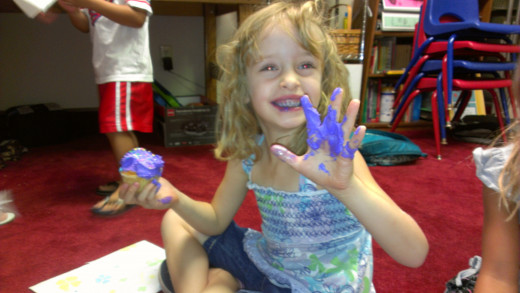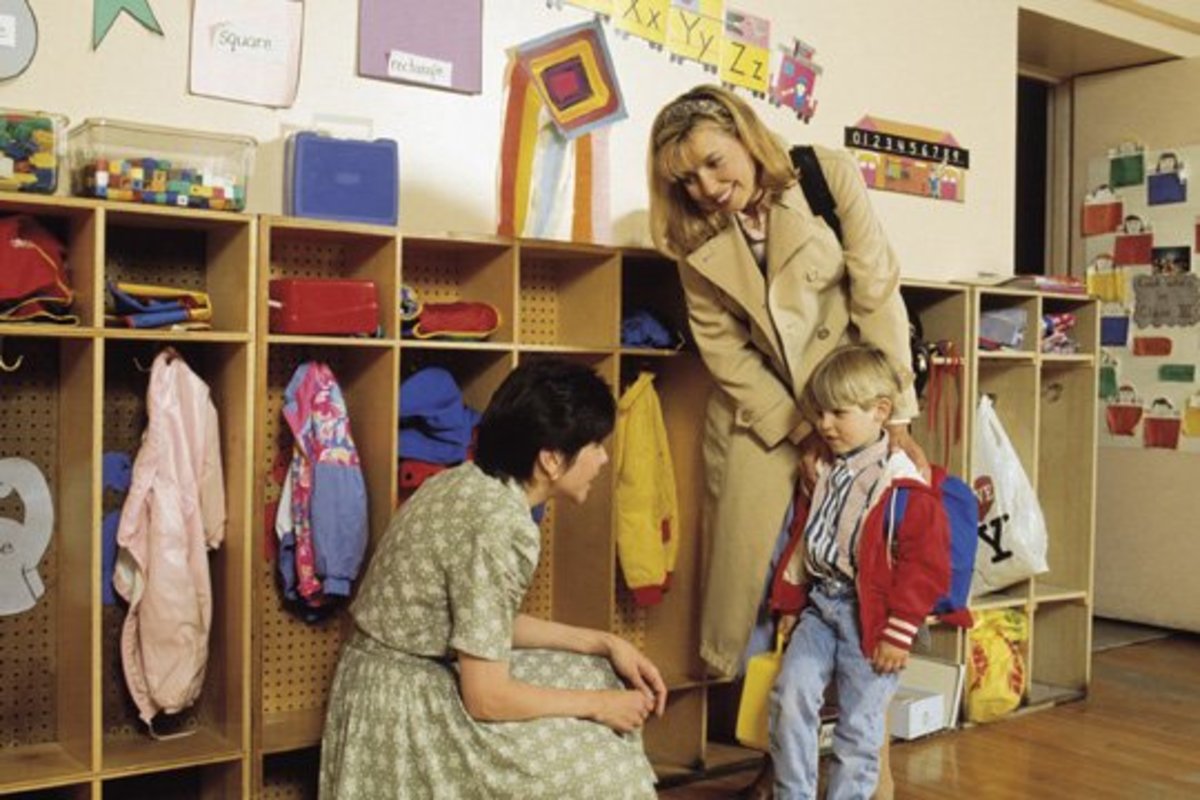- HubPages»
- Health»
- Mental Health»
- Anxiety Disorders
How To: What To Do When Dealing With A Child With Separation Anxiety
Separation Anxiety in Children

What is Separation Anxiety?
All kids go through a period of time when it is hard for them to separate from parents. Usually, this period of time is from about 6 or 7 months of age until around three years of age. Around this age, children are discovering that their parents are unique people and that they have a connection to them. Babies and toddlers begin having trouble being away from their parents and show this by crying, becoming anxious and becoming overly clingy.
As they grow, most children outgrow this stage. They learn that their parents will always return and be there for them when they really need them. Parents can help their children overcome this by not making a big deal of separating from their child. If the mom and dad must leave their child with a sitter or at daycare while they go to work, make that separation as painless as possible. Of course, before you leave your child with someone, you need to make sure you make a great introduction to the caregiver. Help your child feel safe with the person that will be taking care of them. Let the caregiver and your child play together while you are there with them. Also make sure that the caregiver is someone you trust and show your child that your trust them. This will help make the eventual separation much easier.
Signs and Symptoms of Separation Anxiety
- Fussing
- Crying
- Tantrums
- Child refuses to leave parent(s)
- Sleep issues
- Stomach pain
- Muscle pain
- Selective mutism
- Headaches
- Dizziness
- Nausea and/or vomiting
Separation Anxiety in Children
Some children have a tougher time overcoming the separation. Whether it is because a parent is anxious and the child can feel that, or the child is just anxious, or any other reason, it is just much harder for some children to separate from their parents. This can be carried on until school begins and beyond for some children.
I work with two children. Both children have great parents who love their children unconditionally. Both children also have separation anxiety disorder. The way that their parents have handled the situation has drastically affected both children.
The first child is Maddy. She is a first grader that has also been diagnosed with autism. She is bright little girl with bright blue eyes and blonde, curly hair. She has her little quirks – as children with autism often do. At the beginning of first grade, she had a terrible time getting on the bus and leaving her mom. She would fight and scream and refuse to get on the bus. We tried everything.
We tried rewards. Her mother told her that if she would get on the bus and ride to school, she would get her favorite snack after school. When that didn’t work, she tried using her favorite books. Next, she tried extra time on the iPad. None of it worked.
We tried consequences. If she refused to get on the bus, she would lose a privilege. Books were taken away. Technology time was limited. Snacks were no longer as much fun.
What finally worked was consistency. Mom insisted every day that Maddy get on the bus. She was firm, yet loving as she carried her onto the bus and strapped her into the seat. Mom assured Maddy that she was loved and that she would see Maddy after school. She assured Maddy that everything was great and that things would still be great when she returned from school. Finally, after a few weeks, Maddy calmly got on the bus and had a great day at school. We haven’t had that issue since that time.
This Is A "Normal" Age For Separation Anxiety

Separation Anxiety Treatment
- Practice separations
- Develop a separation ritual
- Leave without fanfare
- Teach relaxation techniques
- Don't lie about leaving - don't say "I'll be back in a minute" if you won't be back in a minute.
- Be consistent
- Don't give in
- Be patient
- Medication, if necessary and prescribed by your physician
Dealing With Separation Anxiety Disorder
Eddy is also a first grader. He has a learning disability. His parents love him and his little sister and think they can do no wrong. They would do anything for their children. They want them to do well in school and will do anything to ensure that they do.
When Eddy began having difficulty coming to school, his parents went about things a little differently. If he cried and screamed and told mom that he wanted to stay home, Mom would hold him and cuddle him and tell him everything was going to be okay. And then let him stay home. The next time it happened, she bought him a new fish. And then let him stay home. This pattern continued. Eddy still fought coming to school.
I talked to Mom and tried to help her to see that she was rewarding his behavior. She didn’t want to hear it. She just knew that what she was doing was the right thing to do. The social worker and school psychologist also talked to her. Again, she was firm in her belief that she was doing the right thing.
This has continued now for several months. Eddy has been fighting coming to school every day. Many days he stays home because his mother doesn’t want him to cry. His behavior has only continued to get worse. He throws tantrums at school when things don’t go his way. He has begun to throw things when things get tough for him. I have had to create a “recovery” spot for him in the classroom to keep him safe and to keep the other students in my class safe from him. Things are not getting better for him.
These two children are very similar. They both have parents who love them and want the best for them. Parents who think what they are doing is the best thing for their child. Both children began the school year not wanting to separate from their parents.
She Is A Little Older

Separation Anxiety Disorder In Children
Do you know a child with separation anxiety?
Anxiety Disorders in Children
These children are very different, as well. Maddy is reasonably well adjusted. She is getting on the bus every day. She is happy. She is succeeding in school. She is happy at home and she is very assured that mom and dad love her very much.
Eddy is also assured that he is loved. He is also very assured that he can manipulate his mom. He has learned that he can misbehave and that he will be rewarded for it. He has learned that there are no consequences for throwing things or endangering other students.
There is no one solution for all children with separation anxiety disorder. Some children need to be medicated. Some, as with Maddy, just need behavior modification. Others need a combination of these. But all treatments need consistency in order for them to work.








